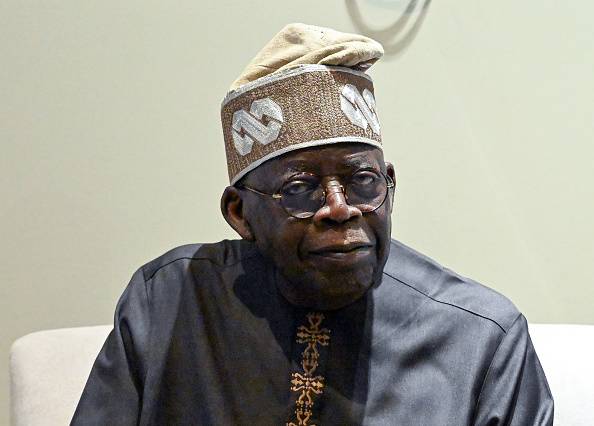
Bola Tinubu, President of Nigeria. (Photo by Soeren Stache/picture alliance via Getty Images)
Nigeria’s President Bola Ahmed Tinubu’s recent tour culminated in a stop in Pretoria for the 11th Bi-National Commission in December last year.
After a year of somewhat tense social relations between the two countries, the meeting between him and President Cyril Ramaphosa would see some tension alleviated but leave some in the realm of international relations.
Ramaphosa’s statement about easing business visas for Nigerians spurred social media discussions on what South Africa and Nigeria stood to gain from deepening trade relations and whether visa requirements should be at the heart of it.
The early 21st century was marked by great optimism about a new chapter for the continent, with songs about it and slogans about “Africa rising” plastered everywhere. The enthusiasm around the new growth and prosperity the continent would enjoy was championed significantly by South Africa’s president Thabo Mbeki and Nigeria’s first peacetime president Olusegun Obasanjo.
The Millennium Partnership for the African Recovery Programme was initiated in 1999 to put into policy and practice what many great pan-African ideologies had put on paper. This plan gave way to the New Partnership for Africa’s Development as the foundation of the modern African Union was laid and the African Continental Trade Agreement was signed in Kigali in 2018.
South Africa’s economic relationship with the African continent in general, and Nigeria in particular, is one that could be best described as lopsided. On one hand, South Africa runs a trade deficit with Nigeria because of the import of oil and natural gas. On the other hand, South African companies such as MTN, MultiChoice, PEP and Standard Bank have been able to use the country’s footprint in Nigeria as a platform for continental domination.
The inefficiencies of South Africa’s visa systems have been noted by the business community as a hindrance to economic growth. In 2023, it was found that South Africa issued just 25 298 work permits from 2014 to 2021.
The failure of the department of home affairs to process business and work visas could be a reason why South Africa successfully imports raw materials from countries such as Nigeria and Ghana but their fast-moving consumer goods — products in high demand that are sold quickly and are affordable — struggle to find their way to our shelves.
The two men at the helm at Aso Rock Presidential Villa and the Union Buildings find themselves facing similar issues but for different reasons and collaboration could help both of them.
Both South Africa and Nigeria have struggled with food inflation over the past few years. For example, tomatoes have seen a year-on-year price increase of 14.8% in South Africa, because of supply constraints, while Nigeria is the largest producer of tomatoes in sub-Saharan Africa. The petrostate has been looking to agriculture exports as means to diversify its economy and increase non-oil foreign currency inflows.
Tinubu and Ramaphosa are both overseeing their economies through periods of high inflation, sluggish economic growth and debilitating exchange rates.
In South Africa, which has an unemployment rate of 32.9%, this means stiff competition for the business and work opportunities that do exist.
We find a similarly desperate situation for Nigerian citizens. That country’s economy is a far cry from the heyday of 2014 where the GDP made it the undisputed African giant.
To borrow from British-Ghanaian Rapper Stormzy, “We are all alone in this together.” As isolated as each country’s problems might appear, the solution might be in tying each other’s life vests together, rather than trying to swim to shore alone against the current of ever strengthening tides.
The realisation of the goals of the African Continental Free Trade Agreement in particular and the African century in general will require us to be comfortable with the uncomfortable. Sometimes that means making policy decisions not to maintain a present status quo but to realise a noble and necessary goal.
Cairo Mathebula is a master’s of public policy graduate from Stony Brook University of New York and political commentary writer.